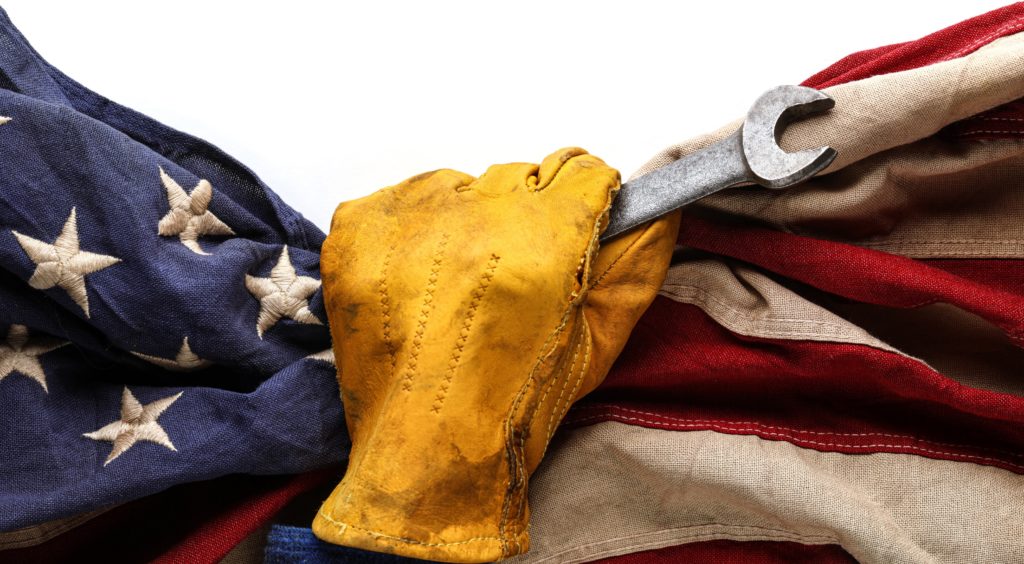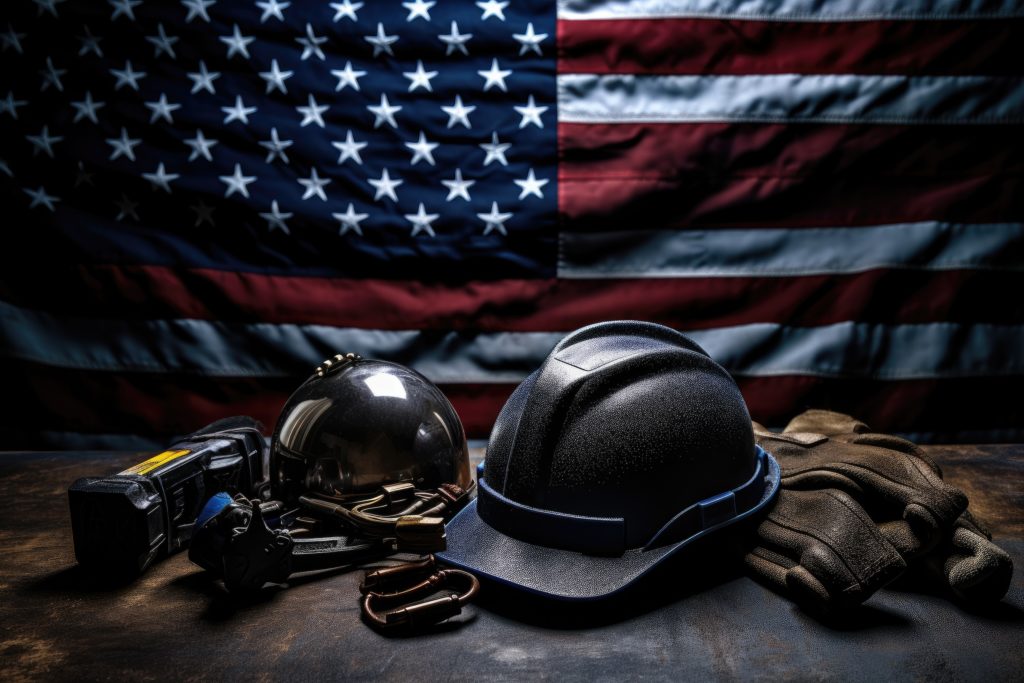In the complex world of sheet metal manufacturing, understanding government procurement regulations is essential. One key set of rules that significantly impacts the industry is the Buy American Act and Buy America requirements. These regulations, while different in scope, both aim to support domestic manufacturing and strengthen the U.S. economy.
Today, we’ll take a closer look at the details of these regulations and how they affect sheet metal manufacturers. By mastering these rules, companies can ensure compliance, unlock new opportunities, and gain a competitive edge in government contracts.

*Crafting American Quality: Upholding the Tradition of Excellence in U.S. Sheet Metal Manufacturing*
### Why Understanding the Buy American Act Matters for Sheet Metal Manufacturers
Sheet metal manufacturing plays a crucial role in various industries, including construction, transportation, and infrastructure. Whether it's supplying parts for public transit systems, building bridges and highways, or creating components for aerospace projects, sheet metal manufacturers are vital to the nation’s development.
Government agencies at all levels—federal, state, and local—are major buyers of sheet metal products. This makes it essential for manufacturers to understand the procurement rules that govern these transactions. The Buy American Act and Buy America requirements set strict guidelines on sourcing and production for government-funded projects involving sheet metal.
### Key Aspects of the Buy American Act
The Buy American Act, first enacted in 1933, is a cornerstone of U.S. federal procurement policy. It applies to purchases by federal agencies exceeding $10,000. Under this act, goods must be produced in the U.S., with at least 50% of their components sourced domestically.
There are exceptions and waivers available, offering some flexibility in certain situations. However, compliance remains critical for manufacturers aiming to secure government contracts.

*Forging the Future with American Pride: The Essential Gear of U.S. Sheet Metal Craftsmanship*
### Buy America Requirements: What You Need to Know
In addition to the Buy American Act, sheet metal manufacturers must also comply with Buy America requirements, which apply specifically to infrastructure projects funded by the federal government.
These requirements mandate that iron, steel, and other manufactured products used in such projects must come from domestic sources. They are enforced by agencies like the Federal Transit Administration (FTA), Federal Highway Administration (FHWA), and others.
Each agency has its own thresholds and criteria. For example, FTA requires 70% of rolling stock components to be made in the U.S., while FHWA mandates 100% domestic sourcing for iron and steel.
### Sector-Specific Details
According to the Canadian Trade Commissioner Service (TCS), here's a summary of key Buy America requirements:
| Agency | Threshold | Impacted Goods | Requirements |
|--------|-----------|----------------|--------------|
| FTA – Buses, Subways | $150,000 | Rolling stock | 70% U.S. made, final assembly in U.S. |
| FHWA – Highways | $2,500 or 0.1% of contract value | Iron, steel | 100% U.S. made |
| FRA – Trains | $100,000 | Iron, steel | 100% U.S. made |
| Amtrak | $1 million | All goods | 50% U.S. made, final assembly in U.S. |
| FAA – Airport Construction | No threshold | Steel | 60% U.S. made, final assembly in U.S. |
| EPA | No threshold | Iron, steel | 100% U.S. components |
### Exceptions, Waivers, and State-Level Considerations
While the rules are strict, there are exceptions and waivers that allow for flexibility in certain cases. These may be granted if foreign alternatives are more cost-effective or if domestic supply is insufficient.
Many states also have their own Buy American-like laws, adding another layer of complexity for manufacturers operating across multiple regions.
### Opportunities and Challenges
Compliance with these regulations opens up access to lucrative government contracts and helps build a reputation as a reliable, domestic supplier. However, it also presents challenges, such as higher costs and increased administrative burden.
To succeed, manufacturers should focus on optimizing their supply chains, improving cost efficiency, and developing strong compliance frameworks.
### Small Business Set Asides
The U.S. government reserves some contracts for small businesses. While Canadian firms cannot bid directly on set-aside contracts, they can participate through subcontracting, joint ventures, or mentorship programs.
### Navigating International Trade Obligations
The WTO Agreement on Government Procurement (WTO GPA) sets international standards for fair and transparent procurement. U.S. manufacturers must understand these obligations when bidding for contracts, especially those involving international competition.
### Looking Ahead
As government procurement rules evolve, staying informed about regulatory changes and market trends is crucial. Proactive adaptation and strategic planning will help manufacturers remain competitive and thrive in the government contracting space.
### Contact Us
At Atlas Manufacturing, we’ve been delivering high-quality sheet metal solutions since 1962. With expertise in laser cutting, robotic welding, and powder coating, we offer comprehensive services to meet your needs.
Whether you need precision fabrication or contract manufacturing, we’re here to help. Contact us today to learn how we can bring your vision to life.
**Important Note:** Atlas Manufacturing makes no guarantees regarding the accuracy of the information provided. Please review it carefully before using it in any official capacity.
**Sources Used:**
[Buy America Regulations - Canadian Trade Commissioner Service](https://www.tradecommissioner.gc.ca/sell2usgov-vendreaugouvusa/procurement-marches/buyamerica.aspx?lang=eng)
HEATING INSULATION FOR BPHE
Heating insulation for a Brazed Plate Heat Exchanger is important to minimize heat loss and improve the overall efficiency of the system. Some common insulation materials used for this purpose include:
1. Mineral Wool: Mineral wool is a popular choice for insulation due to its excellent thermal properties and fire resistance. It is available in various forms, such as blankets or boards, and can be easily cut and shaped to fit the heat exchanger.
2. Foam Insulation: Foam insulation, such as polyurethane or polystyrene, is lightweight and offers good thermal insulation. It is often used in applications where space is limited or weight reduction is desired.
3. Fiberglass: Fiberglass insulation is widely used in industrial applications due to its low cost and good thermal insulation properties. It is available in various forms, such as batts or loose fill, and can be easily installed around the heat exchanger.
4. Ceramic Fiber: Ceramic fiber insulation is known for its high-temperature resistance and low thermal conductivity. It is commonly used in applications where the heat exchanger operates at high temperatures.
When selecting insulation for a brazed plate heat exchanger, it is important to consider factors such as the operating temperature, space limitations, and fire safety requirements. Additionally, proper installation and sealing of the insulation are crucial to ensure maximum effectiveness.
Titanium Pool Heat Exchanger Epp Insulation, heat exchanger heating insulation, brazed heat exchanger heating insulation
Jiangsu Baode Heat-Exchanger Equipment Co.,LTD , https://www.baodehex.com